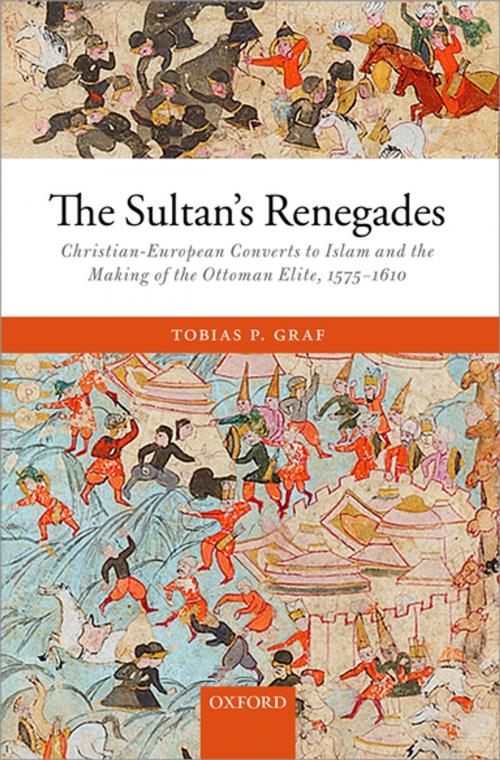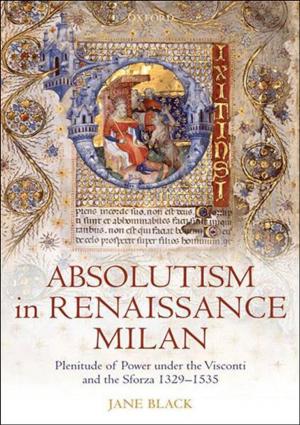The Sultan's Renegades
Christian-European Converts to Islam and the Making of the Ottoman Elite, 1575-1610
Nonfiction, History, Middle East, Religion & Spirituality| Author: | Tobias P. Graf | ISBN: | 9780192509048 |
| Publisher: | OUP Oxford | Publication: | February 23, 2017 |
| Imprint: | OUP Oxford | Language: | English |
| Author: | Tobias P. Graf |
| ISBN: | 9780192509048 |
| Publisher: | OUP Oxford |
| Publication: | February 23, 2017 |
| Imprint: | OUP Oxford |
| Language: | English |
The figure of the renegade - a European Christian or Jew who had converted to Islam and was now serving the Ottoman sultan - is omnipresent in all genres produced by those early modern Christian Europeans who wrote about the Ottoman Empire. As few contemporaries failed to remark, converts were disproportionately represented among those who governed, administered, and fought for the sultan. Unsurprisingly, therefore, renegades have attracted considerable attention from historians of Europe as well as students of European literature. Until very recently, however, Ottomanists have been surprisingly silent on the presence of Christian-European converts in the Ottoman military-administrative elite. The Sultan's Renegades inserts these 'foreign' converts into the context of Ottoman elite life to reorient the discussion of these individuals away from the present focus on their exceptionality, towards a qualified appreciation of their place in the Ottoman imperial enterprise and the Empire's relations with its neighbours in Christian Europe. Drawing heavily on Central European sources, this study highlights the deep political, religious, and cultural entanglements between the Ottoman Empire and Christian Europe beyond the Mediterranean Basin as the 'shared world' par excellence. The existence of such trans-imperial subjects is not only symptomatic of the Empire's ability to attract and integrate people of a great diversity of backgrounds, it also illustrates the extent to which the Ottomans participated in processes of religious polarization usually considered typical of Christian Europe in this period. Nevertheless, Christian Europeans remained ambivalent about those they dismissed as apostates and traitors, frequently relying on them for support in the pursuit of familial and political interests.
The figure of the renegade - a European Christian or Jew who had converted to Islam and was now serving the Ottoman sultan - is omnipresent in all genres produced by those early modern Christian Europeans who wrote about the Ottoman Empire. As few contemporaries failed to remark, converts were disproportionately represented among those who governed, administered, and fought for the sultan. Unsurprisingly, therefore, renegades have attracted considerable attention from historians of Europe as well as students of European literature. Until very recently, however, Ottomanists have been surprisingly silent on the presence of Christian-European converts in the Ottoman military-administrative elite. The Sultan's Renegades inserts these 'foreign' converts into the context of Ottoman elite life to reorient the discussion of these individuals away from the present focus on their exceptionality, towards a qualified appreciation of their place in the Ottoman imperial enterprise and the Empire's relations with its neighbours in Christian Europe. Drawing heavily on Central European sources, this study highlights the deep political, religious, and cultural entanglements between the Ottoman Empire and Christian Europe beyond the Mediterranean Basin as the 'shared world' par excellence. The existence of such trans-imperial subjects is not only symptomatic of the Empire's ability to attract and integrate people of a great diversity of backgrounds, it also illustrates the extent to which the Ottomans participated in processes of religious polarization usually considered typical of Christian Europe in this period. Nevertheless, Christian Europeans remained ambivalent about those they dismissed as apostates and traitors, frequently relying on them for support in the pursuit of familial and political interests.















